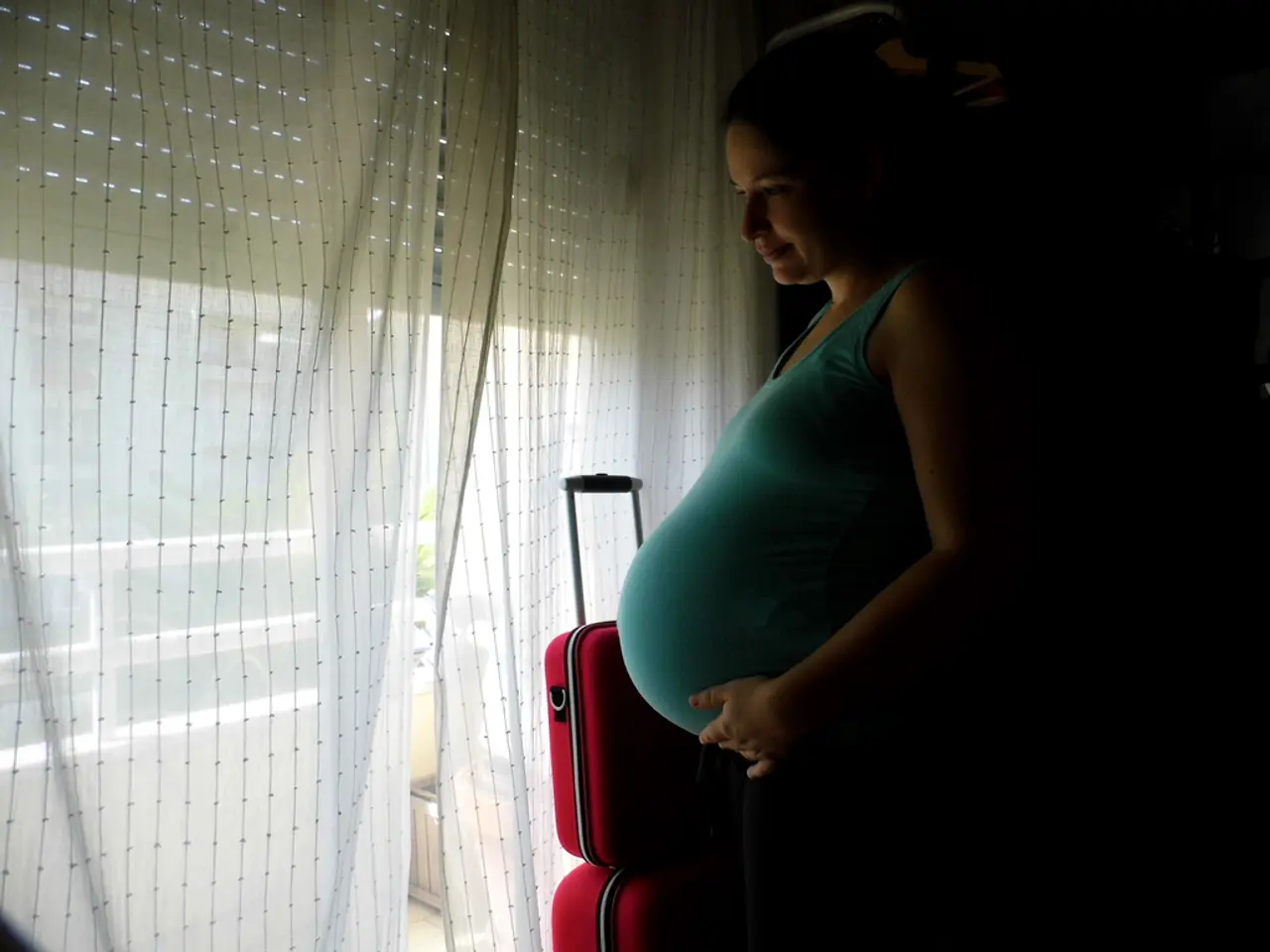Pregnant Cat Ownership: Understanding a Potential Hazard You Should Be Aware Of
Minimizing the Risk of Toxoplasmosis During Pregnancy
Pregnant women should be aware of the potential risks associated with a parasitic infection called toxoplasmosis, which can be transmitted from cat feces. The infection is usually contracted through an oral-fecal route, but it can also occur by handling contaminated garden soil, coming into contact with pregnant sheep and lambs, or eating undercooked or raw meat and unwashed vegetables.
To minimize the risks during pregnancy, it is recommended to delegate the litter box cleaning task to another household member whenever possible. If this is not feasible, wearing disposable gloves and washing hands thoroughly afterward is crucial. Scooping the litter daily also helps reduce the survival of the parasite.
Keeping cats indoors and feeding them cooked or commercial food can further reduce the chances of them contracting Toxoplasma, the microbe that causes toxoplasmosis. It's also advisable to avoid gardening without gloves and cover outdoor sandboxes to prevent contamination from cat feces.
Maintaining food safety practices by thoroughly cooking meat and washing fruits and vegetables is equally important. Wearing a mask is not necessary when cleaning a litter box, but it's a good idea to wear gloves and wash hands thoroughly afterwards, particularly if pregnant.
Pregnant women who suspect they have encountered infected material should contact their doctor or midwife for advice. Blood tests can confirm whether a person has had toxoplasmosis in the past, but most people are unaware of their history with the infection. If a pregnant woman contracts toxoplasmosis, her doctor may give further tests to determine the risk of passing the infection to the baby.
Toxoplasmosis can have serious complications for both mother and unborn child, so it's essential to take these precautions to protect them. Veterinary surgeon Rebecca offers advice on preventing toxoplasmosis in pregnancy, including keeping the cat's litter tray clean and wearing gloves while gardening.
[1] Centers for Disease Control and Prevention. (2021). Toxoplasmosis in Pregnancy. https://www.cdc.gov/parasites/toxoplasmosis/pregnancy.html
[2] American Pregnancy Association. (2021). Toxoplasmosis. https://americanpregnancy.org/pregnancy-complications/toxoplasmosis/
[3] Mayo Clinic. (2021). Toxoplasmosis. https://www.mayoclinic.org/diseases-conditions/toxoplasmosis/symptoms-causes/syc-20353882
[4] NHS. (2021). Toxoplasmosis. https://www.nhs.uk/conditions/toxoplasmosis/
- Pregnant women should be mindful of toxoplasmosis, a parasitic infection that can be transferred from cat feces, often through an oral-fecal route.
- To mitigate the risks during pregnancy, consider delegating the litter box cleaning task or wear disposable gloves and wash hands thoroughly after.
- Keeping cats indoors and feeding them cooked or commercial food can lower the chances of them contracting Toxoplasma, the microbe that causes toxoplasmosis.
- Pregnant women are advised to maintain food safety practices, such as cooking meat thoroughly and washing fruits and vegetables, to prevent toxoplasmosis.
- If a pregnant woman suspects exposure to infected material, it is recommended to consult a doctor or midwife for advice.
- Toxoplasmosis can pose serious threats to both mother and unborn child, making it crucial to follow precautions for health and wellness to protect them.




